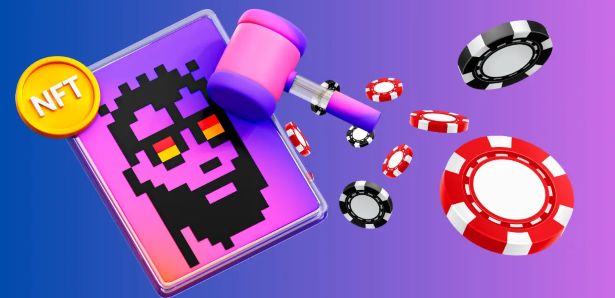Casino Technology and Cultural Preservation: Blockchain and NFTs for Historic Sites
Preserving cultural landmarks is a vital part of maintaining a nation’s identity and heritage. But with limited funding and the increasing costs of conservation, finding sustainable ways to protect these historic sites is challenging. That’s where technology comes in. Blockchain and NFTs (non-fungible tokens) are innovative digital tools that offer new opportunities for funding and preserving cultural heritage. When these technologies are combined with the casino industry’s advancements, they could create fresh solutions for heritage conservation.
Saskatchewan players, in particular, have the opportunity to access detailed online casino reviews, highlighting platforms that emphasize Responsible Gambling and contribute to community heritage projects. These reviews break down sites offering transparent software and innovative features, including those that support local charitable and cultural efforts. A great way to locate the best Saskatchewan online casinos is by visiting onlinecasinosaskatchewan.com, which features reviews of responsible and heritage-focused platforms.
Casino Technology: A Driver for Innovation
Online casinos are at the forefront of adopting new technology to improve gaming experiences. Blockchain technology is one such advancement, initially embraced by online casinos to ensure transparency and security in their transactions. Blockchain’s decentralized nature makes it ideal for keeping data secure, transparent, and easily verifiable. For casinos, this technology has built trust among players by ensuring fairness in games and securing financial transactions.


Alongside blockchain, NFTs are becoming popular in the online gaming world. NFTs allow players to own unique digital items like collectibles, artwork, or in-game assets. These tokens are valuable because each one is unique and cannot be replicated. In online casinos, NFTs could represent rare achievements, rewards, or even unique virtual experiences. The potential for these digital tokens extends far beyond casinos – they could play a crucial role in cultural preservation.
How Blockchain Can Support Cultural Preservation
Blockchain’s role in cultural preservation lies in its ability to handle secure, traceable donations and financial transactions. Many historic sites and cultural landmarks rely on donations or government funding for their maintenance and restoration. Blockchain can provide a transparent and verifiable way to track donations, ensuring that funds are used appropriately and efficiently. This transparency can build trust with donors, encouraging more people to contribute to heritage conservation projects.
For example, cultural organizations can use blockchain to create decentralized platforms where individuals or corporations can donate directly to specific heritage projects. Since every transaction is recorded on the blockchain, contributors can see how their donations are being used, offering a new level of accountability in conservation efforts. Online casinos, already using blockchain for secure transactions, could extend this technology to charitable or cultural preservation initiatives.
NFTs and Historic Site Conservation
While blockchain provides security, NFTs offer a unique way to engage people in cultural preservation. NFTs can represent ownership of a digital asset, such as a replica of a historical artifact or a digital version of a famous landmark. For example, a limited series of NFTs representing important cultural sites in Canada could be sold to raise funds for their restoration or maintenance.
Collectors, art lovers, or history enthusiasts could own a piece of cultural history in the form of a unique digital token, and the proceeds from the sale of these NFTs could go directly to preserving the real-world sites. This approach not only raises funds but also increases engagement with historic sites by offering people a modern way to connect with cultural heritage.
Online casinos, with their vast user bases and experience in engaging players through digital rewards, could be instrumental in promoting these NFTs. Casinos could integrate cultural NFTs into their platforms, offering them as rewards for players or as part of charitable campaigns. This would provide a dual benefit – raising awareness of cultural conservation while giving online gamblers a new, meaningful way to engage with their favourite platforms.
Real-World Applications: Online Casinos and Cultural Partnerships
There are several ways in which online casinos could partner with cultural organizations to promote historic preservation through blockchain and NFTs:
- Charitable Tournaments. Online casinos could host special tournaments where part of the entry fees or winnings are directed to cultural preservation projects. Players would enjoy their usual gaming experience while contributing to a meaningful cause.
- NFT Campaigns. Casinos could offer limited-edition NFTs linked to historic landmarks or cultural events, with the proceeds going to preservation efforts. Players could collect these digital tokens as part of their gaming experience while supporting cultural heritage.
- Transparent Donation Platforms. Casinos could integrate blockchain-based donation platforms into their systems, allowing players to easily contribute to cultural preservation projects. Blockchain ensures that these donations are traceable and used for their intended purpose.
These partnerships would not only help fund conservation projects but also encourage greater public engagement with heritage sites. By offering players tangible ways to support cultural preservation, online casinos could position themselves as key contributors to the future of heritage conservation.
Benefits of Technology in Cultural Preservation
By combining blockchain and NFTs with cultural preservation efforts, several benefits emerge:
- Increased Transparency. Blockchain ensures that donations and funds are securely tracked, building trust between donors and preservation organizations.
- New Revenue Streams. NFTs provide a novel way to raise funds for historic sites, attracting collectors and investors who want to support cultural preservation in a modern, engaging way.
- Public Engagement. Digital tokens like NFTs can help people connect with historic landmarks in ways that are relevant to today’s technology-driven society. This not only raises awareness but also builds a community of people invested in preserving history.
- Partnership Opportunities. Online casinos, already experienced in digital transactions and player engagement, can easily integrate these technologies into their platforms, expanding their role beyond entertainment and into charitable contributions.
Challenges and Ethical Considerations
While the potential is exciting, it is essential to approach these technologies with caution. Over-commercialization of cultural sites could diminish their significance, and not all heritage organizations may have the resources to implement these technologies. Additionally, regulatory concerns and ensuring the authenticity of NFTs representing historical landmarks must be considered.